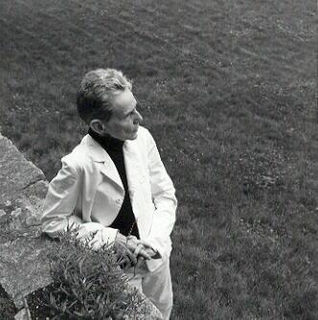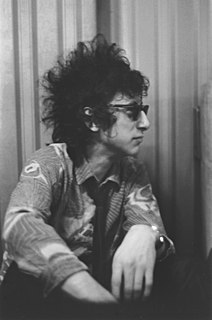A Quote by Harold Bloom
The idea of Herman Melville in a writing class is always distressing to me.
Related Quotes
The great American writer Herman Melville says somewhere in The White Whale that a man ought to be 'a patriot to heaven,' and I believe it is a good thing, this ambition to be a cosmopolitan, this idea to be citizens not of a small parcel of the world that changes according to the currents of politics, according to the wars, to what occurs, but to feel that the whole world is our country.
Herman Melville is not comforting. Emily Dickinson isn’t either. Maybe their work is too hungry for comfort, or just too vivid for comfort. But Henry James is – profoundly so. Because he is tender. The tenderness is there in the structure of the sentence. He knows the way the poor and the dead are forgotten by the living, and he cannot allow that to happen. So he keeps on writing for them, for the dead, as if they were children to be sheltered and loved, never abandoned.
Art has always been my salvation. And my gods are Herman Melville, Emily Dickinson, Mozart. I believe in them with all my heart. And when Mozart is playing in my room, I am in conjunction with something I can’t explain — I don’t need to. I know that if there’s a purpose for life, it was for me to hear Mozart. Or if I walk in the woods and I see an animal, the purpose of my life was to see that animal. I can recollect it, I can notice it. I’m here to take note of. And that is beyond my ego, beyond anything that belongs to me, an observer, an observer.
I am not a religious person, nor do I have any regrets. The war took care of that for me. You know, I was brought up strictly kosher, but I - it made no sense to me. It made no sense to me what was happening. So nothing of it means anything to me. Nothing. Except these few little trivial things that are related to being Jewish. ... You know who my gods are, who I believe in fervently? Herman Melville, Emily Dickinson - she's probably the top - Mozart, Shakespeare, Keats. These are wonderful gods who have gotten me through the narrow straits of life.
Herman Melville said that artists have to take a dive and either you hit your head on a rock and you split your skull and you die … or that blow to the head is so inspiring that you come back and do the best work that you ever did. BUT you have to take the dive and you do not know what the results will be.
































